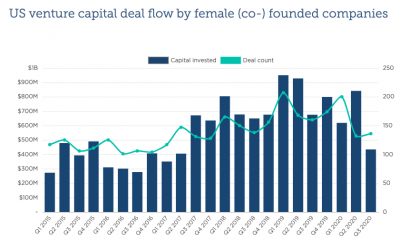www.smallcapvoice.com
Exploring the Potential of Trading Arbitrage Crypto

The Potential of Trading Arbitrage Crypto
In the rapidly evolving world of cryptocurrency, one method that has gained traction among traders is arbitrage. Trading arbitrage crypto involves capitalizing on price discrepancies between different exchanges. For those seeking to maximize profits in cryptocurrency investments, understanding this strategy is essential. To learn more, Trading Arbitrage Crypto click here.
Arbitrage is not a new concept; it has been prevalent in traditional financial markets for years. However, the unique characteristics of cryptocurrency markets provide new opportunities for traders to exploit inefficiencies. In this article, we will explore trading arbitrage crypto, including its definitions, methodologies, risks, and potential rewards.
What is Trading Arbitrage Crypto?
Trading arbitrage crypto is the practice of buying a cryptocurrency on one exchange where the price is lower and simultaneously selling it on another exchange where the price is higher. The difference in price, minus transaction fees, represents the trader’s profit. Given the decentralized nature of cryptocurrencies, prices can vary across exchanges based on supply and demand dynamics.
Types of Arbitrage in Cryptocurrency
There are various types of arbitrage strategies traders can employ. Here are the primary ones:

- Spatial Arbitrage: This is the most common form, involving the same asset traded on different exchanges. For instance, if Bitcoin is priced at $45,000 on Exchange A and $45,500 on Exchange B, traders will buy on Exchange A and sell on Exchange B.
- Triangular Arbitrage: This involves trading between three different currencies. For example, a trader might exchange Bitcoin for Ethereum, then Ethereum for Litecoin, and finally Litecoin back to Bitcoin, taking advantage of the different exchange rates.
- Statistical Arbitrage: This method relies on mathematical models to identify and exploit price inefficiencies between correlated assets. It often incorporates complex algorithms and requires extensive data analysis.
How to Execute Arbitrage Trades
Executing arbitrage trades successfully requires meticulous planning and execution. Here are the steps involved:
- Identify Price Discrepancies: Use price tracking tools or software to monitor multiple exchanges in real-time. Look for currencies that show significant price differences.
- Calculate Fees: Before making any trade, it’s crucial to factor in transaction fees, withdrawal fees, and any other costs associated with trading. This ensures the potential profits outweigh the costs.
- Set Up Accounts: Ensure you have accounts on the relevant exchanges and that your identity is verified, allowing you to deposit and withdraw funds without delays.
- Execute Orders Quickly: Time is of the essence in arbitrage trading. Prices can change rapidly, and delays in execution can negate profits. Utilize limit orders for precision.
Tools and Software for Arbitrage Trading
To enhance the trading process and navigate the crypto landscape efficiently, traders can utilize various tools and platforms:

- Arbitrage Bots: Automated bots can help traders capitalize on price differences rapidly. Bots can monitor multiple exchanges, execute trades, and manage risk.
- Portfolio Trackers: Tools that allow traders to keep track of their investments across various exchanges, helping to assess overall performance.
- Price Aggregators: Websites/apps that compile and display prices from multiple exchanges, helping traders find discrepancies easily.
Risks Involved in Trading Arbitrage Crypto
While arbitrage trading can be highly profitable, it comes with its own set of risks:
- Market Volatility: Cryptocurrency markets are known for their volatility. Prices can change drastically in a matter of seconds, affecting potential profits.
- Transaction Delays: Network congestion and exchange processing times can affect the speed of trades, sometimes resulting in losses.
- Security Risks: Trading on multiple exchanges increases exposure to security threats, such as hacking. It’s vital to use secure exchanges and wallets.
Conclusion
Trading arbitrage crypto presents unique opportunities for traders willing to navigate its complexities. While the potential for profit exists, understanding the risks and employing sound strategies is crucial. As the cryptocurrency landscape evolves, so too will the techniques for exploiting price discrepancies. By staying informed and adapting to market dynamics, traders can maximize their chances for success in the world of crypto arbitrage.
In summary, trading arbitrage in cryptocurrency offers a viable pathway to profitability, provided traders are equipped with knowledge, tools, and an awareness of the inherent risks. With diligence and strategy, it can be a rewarding endeavor in the ever-expanding digital asset market.

-

 Venture Capitalist Firms5 years ago
Venture Capitalist Firms5 years agoA Failing Grade
-

 Venture Capitalist Firms5 years ago
Venture Capitalist Firms5 years agoSome Email Stats
-

 Venture Capitalist Firms4 years ago
Venture Capitalist Firms4 years agoMost Read Blog Posts
-

 Investors5 years ago
Investors5 years agoShifting corporate responsibility to consumer resilience
-

 Investment5 years ago
Investment5 years agoChinese Government Bonds: The Elephant in the Room
-

 Investors5 years ago
Investors5 years agoLast Days of The True Tiger Blog!!
-

 Venture Capitalist Firms2 years ago
Venture Capitalist Firms2 years agoDear SaaStr: What Percentage of Software Sales Reps Have Earned Over $1m a Year?
-
Venture Capitalist Firms5 years ago
Investing In Learning
